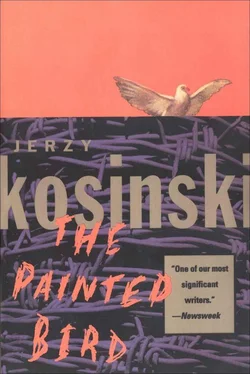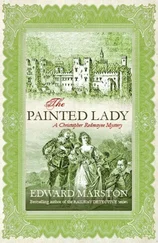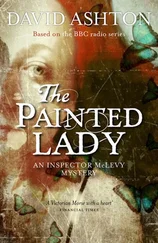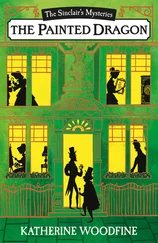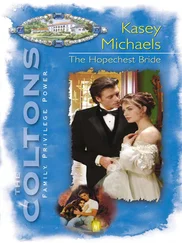Jerzy Kosiński - The Painted Bird
Здесь есть возможность читать онлайн «Jerzy Kosiński - The Painted Bird» весь текст электронной книги совершенно бесплатно (целиком полную версию без сокращений). В некоторых случаях можно слушать аудио, скачать через торрент в формате fb2 и присутствует краткое содержание. Год выпуска: 1965, ISBN: 1965, Жанр: Детская проза, на английском языке. Описание произведения, (предисловие) а так же отзывы посетителей доступны на портале библиотеки ЛибКат.
- Название:The Painted Bird
- Автор:
- Жанр:
- Год:1965
- ISBN:978-0-8021-9575-3
- Рейтинг книги:4 / 5. Голосов: 1
-
Избранное:Добавить в избранное
- Отзывы:
-
Ваша оценка:
- 80
- 1
- 2
- 3
- 4
- 5
The Painted Bird: краткое содержание, описание и аннотация
Предлагаем к чтению аннотацию, описание, краткое содержание или предисловие (зависит от того, что написал сам автор книги «The Painted Bird»). Если вы не нашли необходимую информацию о книге — напишите в комментариях, мы постараемся отыскать её.
The Painted Bird — читать онлайн бесплатно полную книгу (весь текст) целиком
Ниже представлен текст книги, разбитый по страницам. Система сохранения места последней прочитанной страницы, позволяет с удобством читать онлайн бесплатно книгу «The Painted Bird», без необходимости каждый раз заново искать на чём Вы остановились. Поставьте закладку, и сможете в любой момент перейти на страницу, на которой закончили чтение.
Интервал:
Закладка:
In the barn I could still hear the cries of people and animals, rifle shots, the crackling of burning sheds and houses, the neighing of horses, and the raucous laughter of the Kalmuks. A woman moaned softly from time to time. I burrowed deeper into the straw, though every movement hurt me. I wondered what had broken inside my chest. I put my hand against my heart; it was still beating. I did not want to be a cripple. Despite the noise, I dozed off, exhausted and frightened.
I woke with a start. A powerful explosion rocked the barn; some beams fell, and clouds of dust obscured everything. I heard scattered rifle fire and the continuous rattle of machine-guns. I peered out cautiously and saw horses panicking and galloping away and half-naked Kalmuks, still drunk, trying to jump on them. From the direction of the river and from the forest I could hear the gunfire and the roar of engines. An airplane with a red star on its wings flew low over the village. The cannonade ceased after a while, but the noise of the engines grew louder. It was obvious the Soviets were near; the Red Army, the commissars had arrived.
I dragged myself out, but the sudden pain in my chest nearly knocked me over. I coughed and spat out some blood. I struggled to walk and soon reached the hill. The bridge was gone. The big explosion must have blown it up. Tanks were crawling slowly from the forest. They were followed by helmeted soldiers, strolling casually as if on a Sunday afternoon walk. Closer to the village some Kalmuks were hiding behind the haystacks. But when they saw the tanks they came out, still staggering, and raised their hands. They threw away their rifles and revolver belts. Some fell to their knees begging for mercy. The Red soldiers rounded them up systematically, prodding them with bayonets. In a very short time most of them were captured. Their horses calmly grazed nearby.
The tanks had stopped, but new formations of men kept arriving. A pontoon appeared on the river. Sappers examined the ruined bridge. Several planes flew overhead, dipping their wings in greeting. I was somehow disappointed; the war seemed to be over.
The fields around the village were now filled with machines. Men set up tents and field kitchens and strung out telephone wires. They sang and spoke a language that resembled the local dialect, though it was not quite intelligible to me. I guessed it was Russian.
The peasants watched the visitors uneasily. When some of the Red soldiers showed their Kalmuk-like Uzbek or Tartar faces the women screamed and recoiled with fear, even though the faces of the recent arrivals were smiling.
A group of peasants marched into the field carrying red flags with clumsily painted hammers and sickles. The soldiers greeted them with cheers and the regimental commander came out of his tent to meet the delegation. He shook hands and invited them inside. The peasants were embarrassed, and took off their caps. They had not known what to do with the flags and finally deposited them outside the tent before entering.
Beside a white truck with a red cross painted on its roof, a white-coated doctor and his orderlies were treating the wounded women and children. A crowd circled the ambulance, curious to see everything that was being done.
Children followed the soldiers, asking for sweets. The men embraced them, and played with them.
At noon the village learned that the Red soldiers had hanged all the captured Kalmuks by the legs from the oak trees along the river. Despite the pain in my chest and my hand I dragged myself there, following a crowd of curious men, women, and children.
One could see the Kalmuks from afar; they were hanging from the trees like sapless, overgrown pine-cones. Each had been hanged from a separate tree, dangling by his ankles, his hands tied behind his back. Soviet soldiers with friendly smiling faces walked around calmly rolling cigarettes from pieces of newspaper. Although the soldiers did not allow the peasants to come near, some of the women, recognizing their tormentors, began to curse and throw chunks of wood and dirt at the limp hanging bodies.
Ants and flies crawled all over the strung-up Kalmuks. They crept into their open mouths, into their noses and eyes. They set up nests in their ears; they swarmed over their ragged hair. They came in thousands and fought for the best spots.
The men swung in the wind and some of them revolved slowly like sausages smoking in a fire. Some shuddered and uttered a hoarse shriek or whisper. Others seemed lifeless. They hung with wide unblinking eyes, and the veins on their necks swelled monstrously. The peasants lit a bonfire nearby, and whole families watched the hanging Kalmuks, recalling their cruelties and rejoicing over their end.
A gust of wind shook the trees. The bodies swung shivering in widening circles. The watching peasants made the sign of the cross. I looked around for death, for I felt its breath in the air. It had the face of dead Marta as it romped among the oak branches, brushing the hanging men gently, entwining them with cobwebby threads which it spun out from its translucent body. It whispered treacherous words into their ears; it caressingly trickled a chill through their hearts; it strangled their throats.
It was nearer to me than ever. I could almost touch its airy shroud, gaze into its misty eyes. It stopped in front of me, preening itself coquettishly and hinting at another meeting. I was not afraid of it; I hoped it would take me along to the other side of the forest, to the fathomless marshes where branches dip into the steaming caldrons bubbling with sulphurous fumes, where one hears at night the thin dry clatter of coupling ghosts and the shrill wind in the treetops, like a violin in a distant room.
I reached out my hand, but the ghost vanished among the trees with their burden of rustling leaves and heavy crop of hanging corpses.
Something seemed to burn inside me. My head was spinning, and I was covered with sweat. I walked toward the riverbank. The moist breeze cooled me and I sat down on a log.
The river was wide here. Its swift current carried timber, broken branches, strips of sackcloth, bunches of straw in wildly swirling eddies. Now and again the bloated body of a horse floated by. Once I thought I saw a bluish, rotted human corpse hovering just under the surface. For a moment the waters were clear. Then came a mass of fish killed by the explosions. They rolled over, flowed along upside down, and crowded together, as if there were no longer room for them in this river, to which the rainbow had brought them long ago.
I was shivering. I decided to approach the Red soldiers, though I was not sure how they would look upon people with black, bewitching eyes. As I passed by the array of hanging bodies I thought I recognized the man who had hit me with his rifle butt. He was swinging in wide circles, openmouthed and fly-ridden. I turned my head up to get a better view of his face. A pain again pierced my chest.
16
I was released from the regimental hospital. Weeks had gone by. It was the autumn of 1944. The pain in my chest had disappeared, and whatever had been broken by the butt of the Kalmuk’s rifle was now healed.
Contrary to what I had feared, I was allowed to stay with the soldiers, but I knew that this was temporary. I expected to be left in some village when the regiment went into the front line. In the meantime it was encamped by the river, and nothing suggested an early departure. It was a communications regiment, composed mainly of very young soldiers and recently recruited officers, who had been boys when the war began. The cannon, machine-guns, trucks, telegraphic and telephonic equipment were all brand-new and well oiled and as yet untested by war. The tent canvas and the men’s uniforms had not yet had time to fade.
Читать дальшеИнтервал:
Закладка:
Похожие книги на «The Painted Bird»
Представляем Вашему вниманию похожие книги на «The Painted Bird» списком для выбора. Мы отобрали схожую по названию и смыслу литературу в надежде предоставить читателям больше вариантов отыскать новые, интересные, ещё непрочитанные произведения.
Обсуждение, отзывы о книге «The Painted Bird» и просто собственные мнения читателей. Оставьте ваши комментарии, напишите, что Вы думаете о произведении, его смысле или главных героях. Укажите что конкретно понравилось, а что нет, и почему Вы так считаете.
